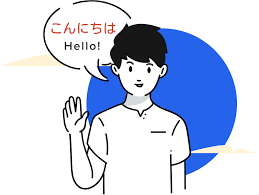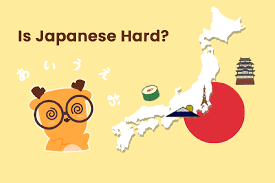Japanese Language Resources
Daily Useful Phrases

The phrases below you will hear and hopefully use everyday while in Japan. The Japanese are a very polite people and appreciate it when foreigners are as well. Using Japanese greetings and courtesies is well received by the Japanese. Using phrases such as, excuse me (Sumimasen) when you need assistance, please (Onegai Shimasu) when asking for something, and thank you (Arigato) are always appreciated.
| Listen | Meaning |
|---|---|
| Arigatou gozaimasu (ありがとうございます) Thank you (Most common). Note: The "u" at the of end of gozaimasu is silent. | |
| Arigatou gozaimashita (ありがとうございました) Thank you past tense. | |
| Doumo arigatou gozaimasu (どうもありがとうございます) Thank you very much. Note: The "u" at the of end of gozaimasu is silent. | |
| Arigatou (ありがとう) Thank you (Casual). Use with family and friends. | |
| Dou itashimashite (どういたしまして) You're welcome | |
| Iie, iie (いいえ、いいえ) No, no, it was nothing |
| Listen | Meaning |
|---|---|
| Ohayou gozaimasu (おはようございます) Good morning. Note: The "u" at the of end of gozaimasu is silent. | |
| Konnichiwa (こんにちは) Good afternoon or hello. Used during daytime. | |
| Konbanwa (こんばんは) Good evening. | |
| Oyasuminasai (おやすみなさい) Good night. | |
| Sayounaya (さようなら) Good bye (formal) | |
| Ja mata (じゃあまた) See you later. |
| Listen | Meaning |
|---|---|
| Sumimasen (すみません) Excuse me or I'm sorry. | |
| Gomen nasai (ごめんなさい) I'm sorry. |
| Listen | Meaning |
|---|---|
| Hai (はい) Yes | |
| Iie (いいえ) No |
| Listen | Meaning |
|---|---|
| Itadakimasu (いただきます) Said before eating or drinking. | |
| Oishii (おいしい) Delicious | |
| Gochisosama deshita (ごちそうさまでした) Thank you for the meal. |
| Listen | Meaning |
|---|---|
| Irasshaimase (いらっしゃいませ) Welcome | |
| Eigo no menyuu ga arimasu ka? (えいご の メニュー が あります か ?) Do you have an English menu? | |
| Kore o kudasai (これをください) Please give me this. | |
| O-kaikei onegaishimasu (お かいけい おねがい します) Please give me the bill. |
Going Beyond Daily Useful Phrases

Becoming conversational in any foreign language can be challenging. Fluency presents even greater challenges. Japanese has its own unique challenges. The grammatic format is very different than English. Japanese uses three distinct alphabets, two are phonetic alphabets and the other is based on Chinese pictograms.
However, learning some Japanese will increase your understanding of Japanese culture and increase your enjoyment while visiting Japan. If you’re planning your first trip to Japan, you should start by memorizing the Daily Useful Phrases.
If you want to go further, there are many resources on the web available to increase your knowledge of Japanese. Many of them focus on Japanese phrases useful to travelers. I have listed one of these resources, below. A simple Google search for ‘learn Japanese’ will produce many more. Many individuals have benefitted from using systems such as Rosetta Stone and Duolingo to learn Japanese.
Many Universities and Colleges offer Japanese language classes both as official curriculum and continuing education. I started my Japanese language journey in continuing education courses at my local University and found it a great place to get started.
NHK
The Japan Broadcasting Corporation also known as NHK, is the Japanese public broadcasting service. They have a well organized website to help you get started learning Japanese. The website address is NHK Learn Japanese and they have a site specializing in travel Japanese NHK Easy Travel Japanese which is very good. All NHK Japanese language learning resources are free to use.